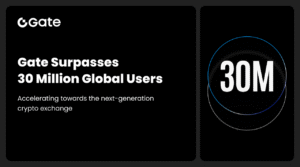In recent years, blockchain technology has gained significant attention and recognition across various industries. One area where blockchain has the potential to make a profound impact is global trade networks. As international trade continues to grow, the need for secure, transparent, and efficient systems becomes increasingly crucial. This article delves into the concept of blockchain consortia and their role in fostering collaboration within global trade networks.
Introduction
In today’s interconnected world, global trade plays a vital role in the economic growth of nations. However, traditional trade systems often suffer from inefficiencies, lack of transparency, and complex processes. Blockchain technology, with its decentralized and immutable nature, has the potential to revolutionize global trade networks. Blockchain consortia, formed through collaborations between multiple organizations, have emerged as a powerful solution to address these challenges.
Understanding Blockchain Technology
Blockchain is a distributed ledger technology that enables the secure recording and verification of transactions across multiple participants. It operates on a peer-to-peer network, where each participant maintains a copy of the ledger. Transactions are grouped into blocks, which are linked together using cryptographic hashes, creating an unchangeable chain of information. This technology ensures transparency, immutability, and enhanced security in data exchange and transactions.
Blockchain technology is a revolutionary concept that has garnered significant attention and is poised to transform various industries. At its core, blockchain is a decentralized and distributed ledger that records and verifies transactions in a secure and transparent manner. Unlike traditional centralized systems, blockchain operates on a peer-to-peer network, where each participant maintains a copy of the ledger.
The blockchain consists of blocks, which are linked together using cryptographic hashes, creating an immutable chain of information. This feature ensures that once a transaction is recorded, it cannot be altered or tampered with. The transparency of blockchain allows all participants to view and verify transactions, promoting trust and eliminating the need for intermediaries.
The key characteristics of blockchain technology include security, transparency, immutability, and decentralization. These features make blockchain a robust and reliable technology for various applications, ranging from financial transactions and supply chain management to healthcare and voting systems.
By leveraging cryptographic algorithms, consensus mechanisms, and smart contracts, blockchain technology enables secure and efficient digital transactions, streamlines processes, reduces costs, and enhances trust among participants. As industries continue to explore and harness the potential of blockchain, we can expect this transformative technology to reshape the way we conduct business and interact in the digital world.
The Significance of Collaboration in Global Trade Networks
Collaboration is crucial in global trade networks as it involves multiple stakeholders, including exporters, importers, banks, insurers, customs authorities, and logistics providers. These stakeholders need to exchange information, verify documents, and track goods throughout the supply chain. Traditional systems often lead to delays, disputes, and increased costs due to information asymmetry and lack of trust. Collaborative efforts are essential to streamline processes, reduce inefficiencies, and enhance trust among participants.
Exploring Blockchain Consortia
Blockchain consortia are collaborative networks formed by multiple organizations to collectively develop, implement, and govern blockchain solutions. These consortia bring together industry players, regulators, and technology providers to address common challenges and explore shared opportunities. By joining forces, organizations can leverage blockchain technology to create secure, interoperable, and scalable solutions that benefit the entire ecosystem. Blockchain consortia are collaborative networks formed by multiple organizations to collectively develop, implement, and govern blockchain solutions. These consortia bring together industry players, regulators, and technology providers to address common challenges and explore shared opportunities. By joining forces, organizations can leverage blockchain technology to create secure, interoperable, and scalable solutions that benefit the entire ecosystem. Blockchain consortia foster collaboration, trust, and transparency among participants, enabling them to streamline processes, reduce inefficiencies, and enhance the overall efficiency and effectiveness of global trade networks.

Benefits of Blockchain Consortia in Global Trade
- Improved Efficiency: Blockchain consortia streamline trade processes by providing a single, shared source of truth. Participants can access real-time data, automate workflows, and reduce manual errors, leading to significant time and cost savings.
- Enhanced Transparency: The transparent nature of blockchain allows all participants to view and verify transactions, reducing the risk of fraud and increasing trust. Smart contracts embedded in the blockchain can automate agreement enforcement, further enhancing transparency and efficiency.
- Increased Security: Blockchain’s cryptographic algorithms ensure the integrity and immutability of data. This eliminates the need for intermediaries and minimizes the risk of data tampering, making global trade networks more resilient to cyber threats.
- Strengthened Trust: By establishing a decentralized and trustless environment, blockchain consortia foster trust among participants. Immutable records and transparent processes instill confidence, reducing the reliance on intermediaries and simplifying dispute resolution.
Case Studies of Successful Blockchain Consortia
- TradeLens: Developed by IBM and Maersk, TradeLens is a blockchain-powered platform that digitizes global supply chains. It connects shippers, port operators, customs authorities, and logistics providers, enabling secure and transparent sharing of supply chain data.
- We.trade: We.trade is a consortium of major European banks that leverages blockchain to simplify and secure cross-border trade. The platform facilitates trust, automates trade processes, and offers financing solutions to small and medium-sized enterprises (SMEs).
Challenges and Limitations
- Scalability: Blockchain technology faces scalability challenges in handling a massive volume of transactions simultaneously. As global trade networks involve numerous participants and a vast amount of data, scalability is a key concern that consortia must address.
- Regulatory Compliance: The adoption of blockchain technology in global trade requires careful consideration of regulatory frameworks. Consortia need to navigate legal and compliance issues to ensure the smooth integration of blockchain solutions.
- Interoperability: Interoperability between different blockchain platforms and legacy systems is essential for seamless information exchange. Consortia must develop standards and protocols to enable interoperability and facilitate widespread adoption.
The Future of Blockchain Consortia
Blockchain consortia have the potential to transform global trade networks by fostering collaboration, enhancing transparency, and reducing friction in cross-border transactions. As the technology matures and scalability concerns are addressed, we can expect to see more consortia emerging across various industries. Interoperability and regulatory compliance will remain key focus areas, enabling seamless integration and widespread adoption of blockchain solutions.
The future of blockchain consortia holds immense potential for transforming global trade networks. As the technology continues to evolve and mature, we can expect significant advancements and widespread adoption of blockchain consortia in the coming years.
One key aspect of the future of blockchain consortia is the focus on interoperability. Currently, there are multiple blockchain platforms and protocols in existence, each with its own set of features and capabilities. To maximize the benefits of blockchain technology in global trade, consortia must work towards establishing interoperability standards and frameworks. This will enable seamless communication and data exchange between different consortia and stakeholders, fostering collaboration on a broader scale.
Another crucial aspect is scalability. As global trade networks involve a massive volume of transactions and a multitude of participants, blockchain consortia must address the scalability challenges associated with blockchain technology. Solutions such as sharding, sidechains, and layer-two protocols are being explored to ensure that blockchain consortia can handle the increasing demands of trade networks without compromising performance or security.
Regulatory frameworks and compliance will also play a significant role in shaping the future of blockchain consortia. As governments and regulatory bodies become more familiar with blockchain technology, there will be a need for clear guidelines and regulations specific to blockchain consortia in global trade. This will provide legal certainty and promote wider adoption of blockchain solutions, facilitating smoother integration with existing systems and processes.
Moreover, as the benefits of blockchain consortia become more evident, we can expect increased participation from various industries beyond trade and logistics. Sectors such as healthcare, finance, supply chain management, and energy are already exploring the potential of blockchain consortia to enhance transparency, efficiency, and security in their respective domains.
Conclusion
Blockchain consortia play a vital role in driving collaboration within global trade networks. By harnessing the power of blockchain technology, these collaborative networks enable secure, transparent, and efficient trade processes. The benefits include improved efficiency, enhanced transparency, increased security, and strengthened trust among participants. While challenges such as scalability and regulatory compliance exist, the future looks promising for blockchain consortia in revolutionizing global trade.
Frequently Asked Questions (FAQs)
Q1: How does blockchain technology enhance transparency in global trade? A1: Blockchain technology provides a shared, immutable ledger that allows all participants to view and verify transactions. This enhanced transparency reduces the risk of fraud and increases trust among stakeholders.
Q2: Can blockchain consortia help reduce trade disputes? A2: Yes, blockchain consortia promote trust and transparency among participants, reducing the likelihood of trade disputes. Immutable records and automated agreement enforcement mechanisms streamline dispute resolution processes.
Q3: What are the key benefits of joining a blockchain consortium? A3: Joining a blockchain consortium allows organizations to collaborate with industry peers, share resources, and collectively develop blockchain solutions. The benefits include improved efficiency, enhanced security, and strengthened market position.
Q4: Are there any regulatory challenges associated with blockchain consortia? A4: Yes, regulatory compliance is a significant challenge for blockchain consortia. The adoption of blockchain technology in global trade requires navigating complex legal frameworks and ensuring compliance with data protection and privacy regulations.
Q5: How can blockchain consortia drive innovation in global trade? A5: By fostering collaboration and sharing expertise, blockchain consortia create an environment conducive to innovation. Through collective efforts, consortia can develop groundbreaking solutions that address the specific challenges of global trade networks.






